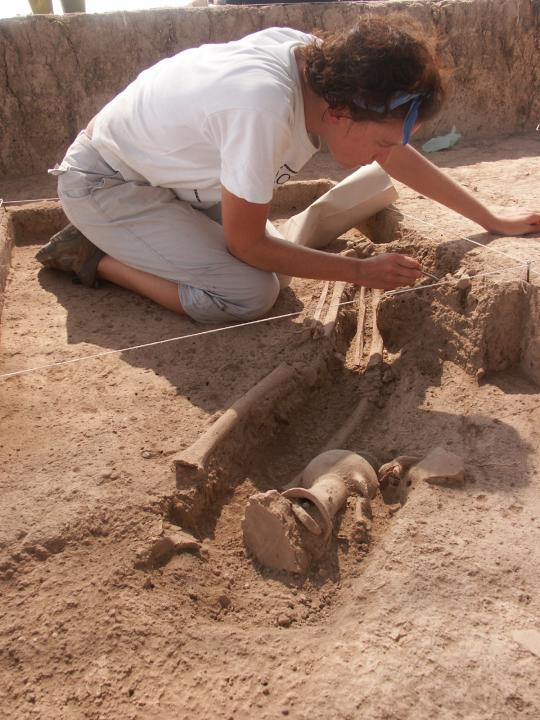Careers in Anthropology

Students of anthropology inevitably face being asked what they can do with their major. While some anthropology majors and minors become academics in universities and research institutions, professional anthropologists are employed in government, in the business world, in education and in a wide range of nonprofit organizations and institutions. For example:
Archaeologists are employed by a host of federal and state agencies as well as private sector cultural resource management firms. They locate and document archaeological sites, artifacts, organic remains, standing structures and landscapes that contain information about the human past of the country. Public archaeology and community-based archaeology projects are increasingly popular components of community revitalization efforts, municipal planning and development projects, and public education programs.
Biological anthropologists work in a variety of settings, including medical schools (as anatomists) and medical research facilities (as medical geneticists and physiologists), in cultural resources management (as osteologists), in crime laboratories (as forensic anthropologists and expert witnesses), in zoos (as designers of captive habitats) and nature conservancies (as conservationists studying critically endangered primate species).
Cultural anthropologists are employed in a wide range of settings including government agencies from the local to national levels, international organizations such as the World Bank, non-governmental agencies, private industry, academia and others. They work on issues including economic development, natural resource management, cultural heritage, tourism, environmental preservation, globalization and many others.
Linguistic anthropologists are active and helpful in the design, evaluation and implementation of curricula for teaching languages, whether to linguistic minorities who do not speak dominant languages or to those whose linguistic capacities differ. In Nicaragua, the emergence of a new sign language helps us to understand how innate human predispositions to acquire language combine with social and cultural factors to produce a new sign language used by deaf Nicaraguans. Such insights led to the official adoption of sign language as the modality of instruction for deaf students.
You can explore careers in anthropology further on the American Anthropological Association careers webpage.


